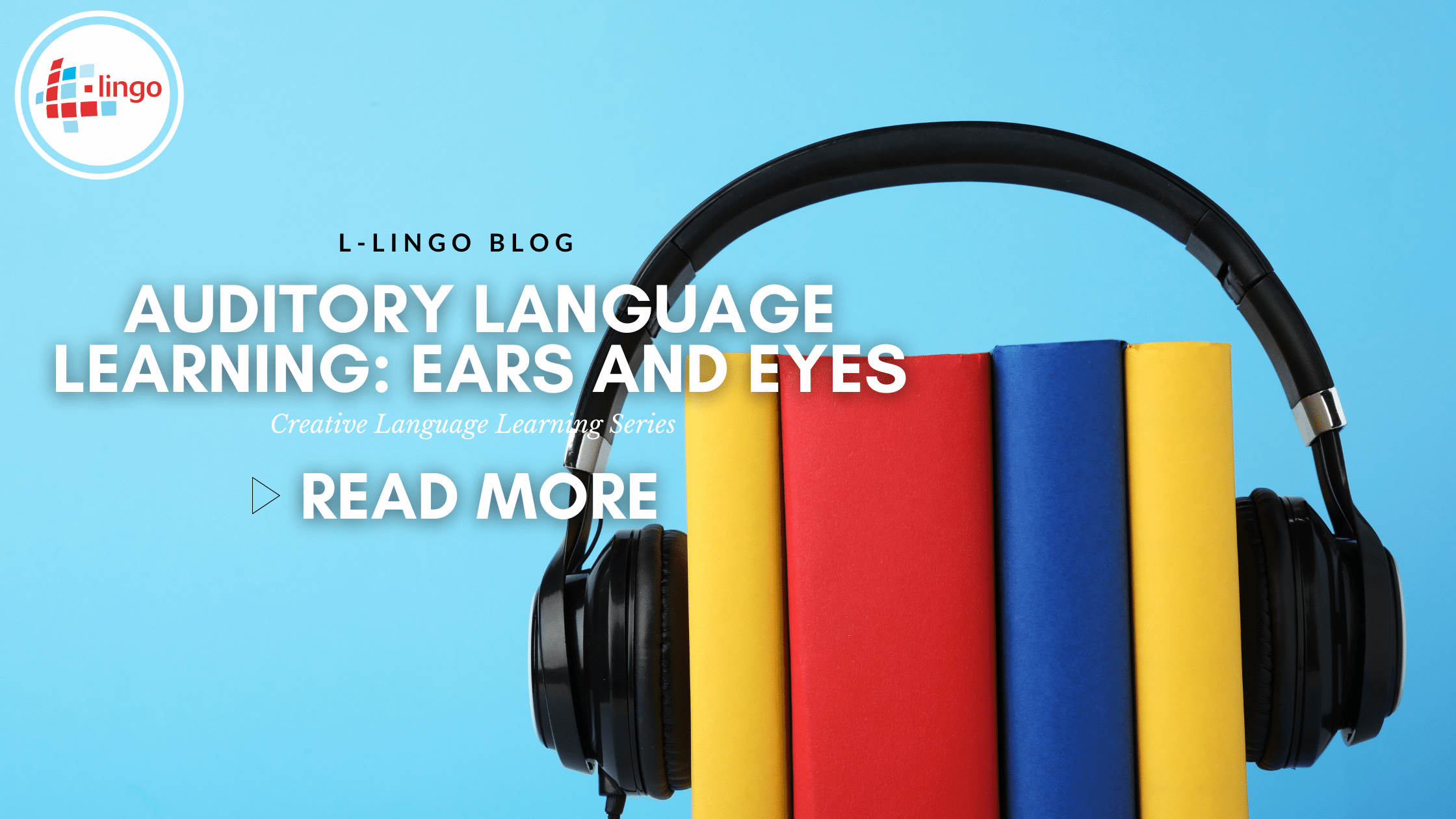Audio language learners excel in getting the most input from the natural world. In this article, whether you are an audio language learner or just want to learn more about how audio language learning works, we’ll review some tips, tricks, techniques, and life lessons in language learning. Open your ears, focus, and enjoy learning about the world of Audio Language Learning.
This world we live in is jam-packed with a ton of helpful input. Okay, let’s back up a bit. I’ve said the word “input” twice already. What exactly do I mean by “input”? Oh, there it is again. Input in language learning can be defined as any language knowledge that a learner can absorb. Input can be measured in language learning by vocabulary words, grammar, phrases, expressions, etc. For example, if you’re living in a country wherein your target language is spoken, you’d be given input constantly due to the surrounding environment. You’d hear words in that language, see street signs, observe and listen to conversations, shop for foreign products (reading the labels in that language), and a slew of other things would provide you with valuable language learning input.
Okay, now that we know what BASIC input is in language learning, let’s talk about auditory language learning. Our world is bustling with input, and we often just brush it off as “noise.” Still, when uncovering the ‘secrets’ of language learning, this noise becomes much more meaningful and turns into sound, and that sound eventually turns into comprehension.
If you’re wondering why I emphasized BASIC input in the last paragraph you read, it’s because the input topic can go down a bottomless rabbit hole. However, the topic itself is fascinating, and while discussing this briefly, I recommend reading Stephen Krashen’s Input Hypothesis.
Now, the key to making the most out of input is treating it as valuable information. Imagine being at a high or intermediate level of the language you’re learning but still having difficulty locking on to conversations. The brain is lazy and only pays attention to what it thinks is necessary; exposure to the same piece of information several times ranks that piece of information to the top of the ladder. For instance, you hear the word “apple” in your target language while at a smoothie shop. The first time you hear it, you know it’s a fruit, but you’re not sure which one. Then you hear it again, but this time in a different context. Let’s say the first time you heard the customer say it, but this time you’re hearing it from the smoothie shop employee. And then, around the eighth or tenth exposure to this word, you may have heard it from multiple sources, and by now, you know that it is a fruit, it’s red, round, and you can make smoothies out of it (oh, and of course, you know the direct translation by now). Does this smoothie shop example make sense?
Treat every sound you come across as necessary in your target language; these include the small grunts, the huffs, the puffs, the sighs, and even the groans and moans. This task might seem mundane at first, but even if you don’t understand everything, your comprehension will gradually increase. Every sound in your target language should be treated as necessary. Even the tiny grunts, huffs, and puffs all hold some meaning. Along with treating these sounds like an “essential,” try and understand everything you hear, even when you think you can’t do so. Audio language learners will thrive in an environment that supports the use of their target language, so what better place than the country or countries that speak the language?
The Power of Focus In Auditory Language Learning
Focus is an underrated superpower, and those who underestimate it should be ashamed. You’re probably asking yourself, what does “focus” have to do with audio language learners? PAUSE. Focus is the greatest asset an audio language learner or any language learner can possess. But since we’re only discussing audio language learners right now, let’s expand on this topic. It is incredibly easy to get lazy as an audio language learner. It’s so simple just to play a video in your target language and pretend as if you’re learning something new when you’re just allowing the sounds to rub against your eardrums. I’m guilty of it, and you’re guilty of it. Heck, we’ve all done it.
Learning anything new, no matter the learning method requires some focus. Wouldn’t it be easy to play a youtube video in our target language and learn 100 words per minute? Unfortunately, we’re not yet at this stage in evolution, and learning new information requires more work. The first step is to find something you don’t mind listening to.
The next step would be to retain information from what you’re listening to, whether it be new words, grammar, phrases, etc. When playing audiobooks, youtube videos, soap operas, Netflix series, apple music, or foreign language playlist, MAKE SURE YOU’RE ACTIVELY LISTENING and not hearing. There’s a difference, and you know there is.
Tell you what, I want you to practice something. Take a deep breath, center yourself, put on a pair of headphones, listen to your favorite song in your target language, or watch your favorite movie in your target language (without the subtitles and the lyrics). How much MORE can you understand when you focus on the words? What is the limit on your attention span? Can you actively pick up the meaning of entire phrases, even when there are words in those phrases you don’t necessarily understand?
Listening With Your Eyes and Your Ears
Listen with your eyes and your ears. I know listening is all about the ears, but we can’t forget about the eyes. Eyes are visual, but they can also boost your listening effectiveness. For example, you’re watching a movie and have no clue what is being said, even though you’re doing your best to listen and understand the fast-spoken dialogues. What do you rely on in this case? Your eyes. The eyes can connect the dots from the medium to the ear. They are your second set of ears IF you know what to look for and WHEN to look for it.
Let’s say you’re watching a movie, for example, in Spanish (no subtitles included). You’re 50 minutes deep into the movie, and the climax is about to happen. So far, you’ve been keeping up with your level of intermediate Spanish, but there are a few holes in your understanding, maybe key details that managed to slip under the radar. When the climax happens, you’re excited, everything is exploding, the bad guy appears, and the hero comes racing in with his Lamborghini wearing a black James bond tuxedo. Here’s the thing, you don’t exactly know what’s going on in this action, but you know that whatever is happening MUST have had something to do with everything before this climax. You’ve been watching and listening intently, and where your ears failed, your eyes didn’t.
Now, in that same sense, you shouldn’t always rely on your eyes when focused on auditory language learning. In the example I gave earlier, what if your ears failed way earlier than they were supposed to because you were too focused on the incredible visuals and big explosions? What if you got so distracted by looking at the Lamborghini that you missed the part when the bad guy said, “You’ve finally decided to show up, brother.”? I’d say in any movie, a surprise sibling reveal is a massive “WOW” moment.
The eyes can be as much of a distraction as a benefit. The eyes are responsible for providing a massive amount of stimuli, so naturally, they are as much of a weakness as they are a superpower. And before Uncle Ben said it, Voltaire said it first, “With great power comes great responsibility.” To sum up my ramblings of poorly written movie plots and legendary quotes, I say this, when language learning, do not let your eyes distract you from the audio. You might miss some vital information.




